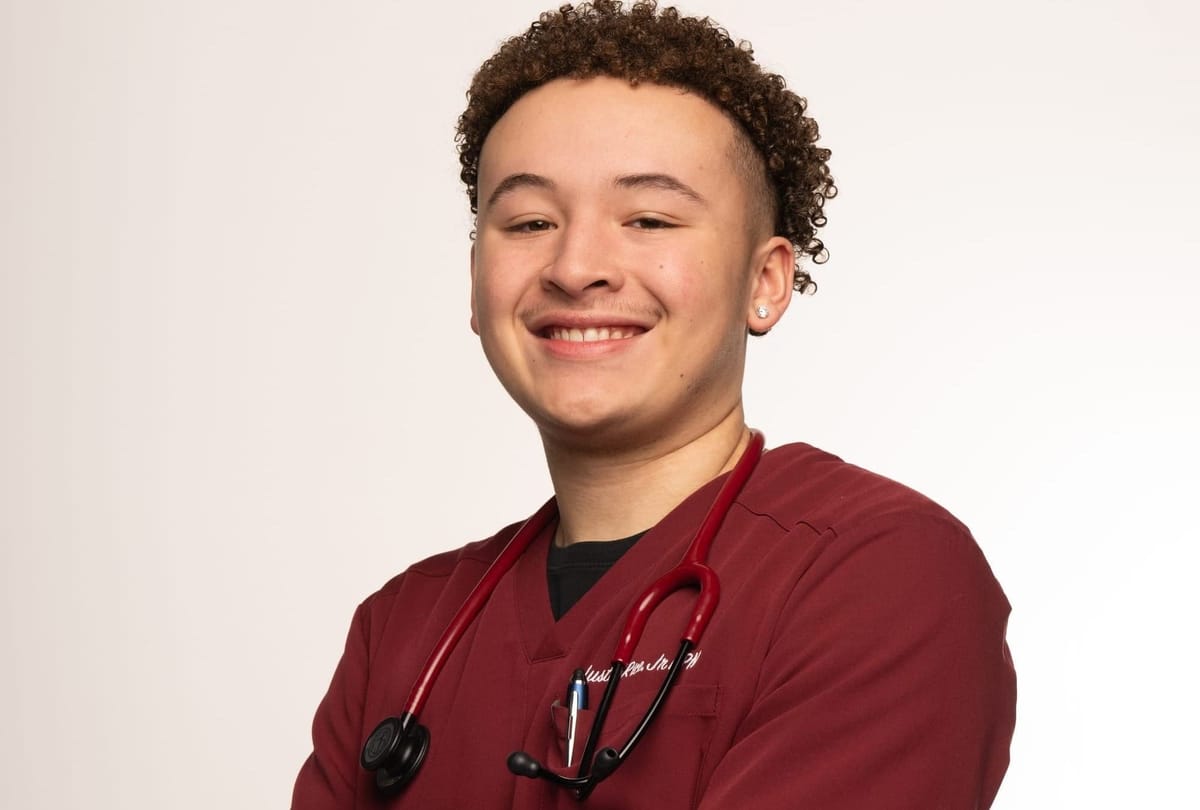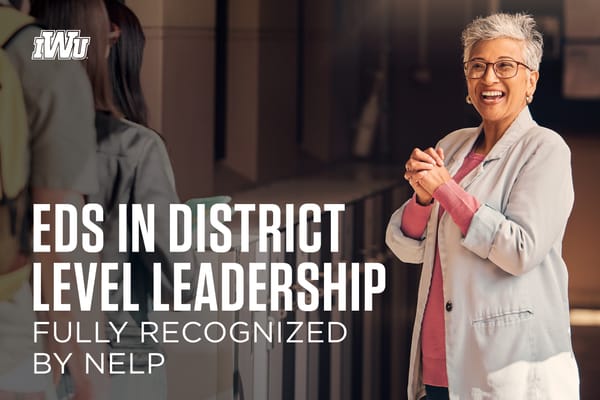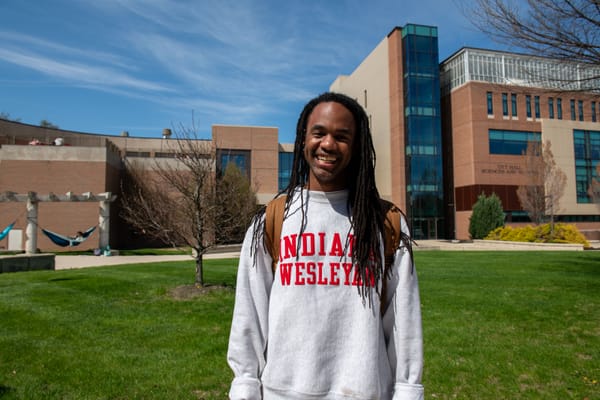IWU Student Fights to Amend Nursing Education Laws

Typical high school students juggle academic stress, shifting social dynamics, and the pressure of planning their futures. But Justin Rice, now a student at Indiana Wesleyan University (IWU), chose to take those challenges a step further. While still in high school, he made the bold decision to become a Licensed Practical Nurse (LPN) — blazing a trail few have even considered.
Earning this certification while still in high school was an ambitious goal that Indiana law did not initially allow. Rice made it his mission to amend the legal bill preventing high school students from earning LPN licenses.
Obtaining this license has given Rice a head start in his professional career and it also provides him with a stable income while attending college.
“This was life-changing for me,” Rice said. “I want other people to be able to do this too.”
After starting his education at Ball State, he transferred to IWU, where he is now pursuing his nursing degree and working as a licensed nurse on the weekends.
The Road to Becoming an LPN in High School
Rice’s path to becoming an LPN began with a spur-of-the-moment decision during his junior year to enroll in a Certified Nursing Assistant (CNA) course. His initiative caught the attention of his high school’s leadership, who saw him as the perfect candidate for an experimental LPN program. No student had ever attempted this before, but Rice was ready to take on the challenge and forge a new educational path.
He became the first high school student in Indiana to enroll in an accelerated one-year nursing program. This wasn’t just another high school class. This was a rigorous, high-stakes commitment. Rice had to juggle the same responsibilities as any high school student — classes, extracurriculars, and social life — but with the added weight of nursing school.
“I wasn’t able to just go out, go to football games, and do the things normal high schoolers do," Rice said. "Every other day, we had a test. It was really challenging.”
On top of his coursework, Rice participated in clinical rotations at local hospitals, gaining hands-on experience alongside full-time nurses.
“They marked it like I was on an educational field trip, but I was really in the hospital, sticking people with IVs,” Rice said.
A Law That Blocked Progress
Indiana law required LPN program applicants to have a high school diploma, meaning Rice technically wasn’t eligible to apply. But he didn’t face this roadblock alone. His school administrators and the State Board of Nursing worked together to find legal loopholes that would allow him to continue in the program.
To maintain his enrollment, Rice had to submit frequent progress reports proving that he was still on track to graduate high school on time.
“We kind of played the game a little bit with the State Board of Nursing,” Rice said. “I had to send in my transcript, showing I was still progressing and trying to graduate.”
The Push for a Bill Amendment
By the time Rice completed the program, his groundbreaking achievement had gained statewide attention. Legislators saw the potential for other students to follow his path and recognized the need for a formal legal change.
Rice was invited to testify in support of the bill amendment, sharing his experiences and explaining how the opportunity had profoundly impacted his education.
“Somebody contacted us and said, ‘Hey, we got this bill in motion. We want you to testify,’” Rice said.
The proposed amendment would:
- Allow high school students to enroll in LPN programs.
- Require a high school diploma only before taking the National Council Licensure Examination (NCLEX) licensing exam.
- Provide a faster, more accessible pathway for students to jumpstart their nursing careers.
“At the beginning of the whole thing, one of the factors was that I’d be paving the way for other people,” Rice said. “And that’s what really kept me going.”
A Legacy of Change
Rice’s journey is a testament to the power of advocacy. Without the support of school officials, legislators, and the State Board of Nursing, none of this would have been possible. Now, he hopes to continue making an impact in the field of nursing. His ultimate goal is to become a psychiatric nurse practitioner, and he remains dedicated to pushing for improvements in nursing education.
“This is really where I take my responsibility as a nurse advocate,” Rice said. “Not just for patients, but for other nurses and future students.”
While he encourages students to take advantage of the new law, he also warns them about the sacrifices required to succeed.
Rice’s story proves that with determination and passion, systemic change is possible. His fight for the bill amendment wasn’t just a win for himself. This amendment is a victory for future students across the state. The journey wasn’t easy, but for Rice, the reward was well worth it.
“No matter the stipulations, I would do it a million times over,” Rice said.




